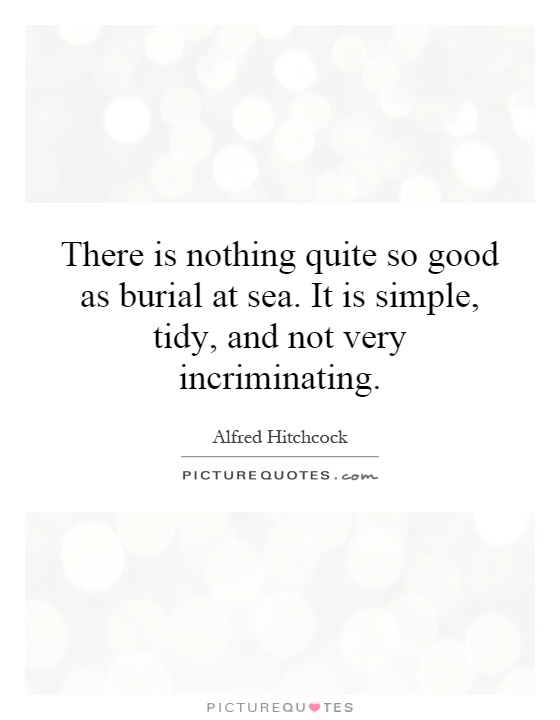There is nothing quite so good as burial at sea. It is simple, tidy, and not very incriminating

There is nothing quite so good as burial at sea. It is simple, tidy, and not very incriminating
Alfred Hitchcock, the master of suspense and psychological thrillers, was known for his dark and twisted view of the world. His films often explored themes of murder, deception, and the darker side of human nature. In many of his movies, death played a central role, and burial at sea was a recurring motif that Hitchcock used to great effect.The quote, "There is nothing quite so good as burial at sea. It is simple, tidy, and not very incriminating," perfectly encapsulates Hitchcock's macabre sensibilities. In Hitchcock's world, death was not just an end, but a means to an end. Burial at sea symbolized the ultimate disposal of a body, a way to erase all evidence of a crime and escape the consequences of one's actions.
In Hitchcock's films, burial at sea was often used as a metaphor for the characters' attempts to bury their guilt and sins. In "Psycho," Marion Crane's body is disposed of in a swamp after her murder, symbolizing the characters' attempts to bury their secrets and escape the consequences of their actions. In "Vertigo," the character of Madeleine is seemingly buried at sea, only to resurface later in a twisted plot of deception and manipulation.
Hitchcock's fascination with burial at sea can be seen as a reflection of his own dark and twisted view of the world. In Hitchcock's universe, death was not just a physical end, but a psychological and moral one as well. Burial at sea represented the ultimate act of erasure, a way to escape the consequences of one's actions and start anew.












 Friendship Quotes
Friendship Quotes Love Quotes
Love Quotes Life Quotes
Life Quotes Funny Quotes
Funny Quotes Motivational Quotes
Motivational Quotes Inspirational Quotes
Inspirational Quotes